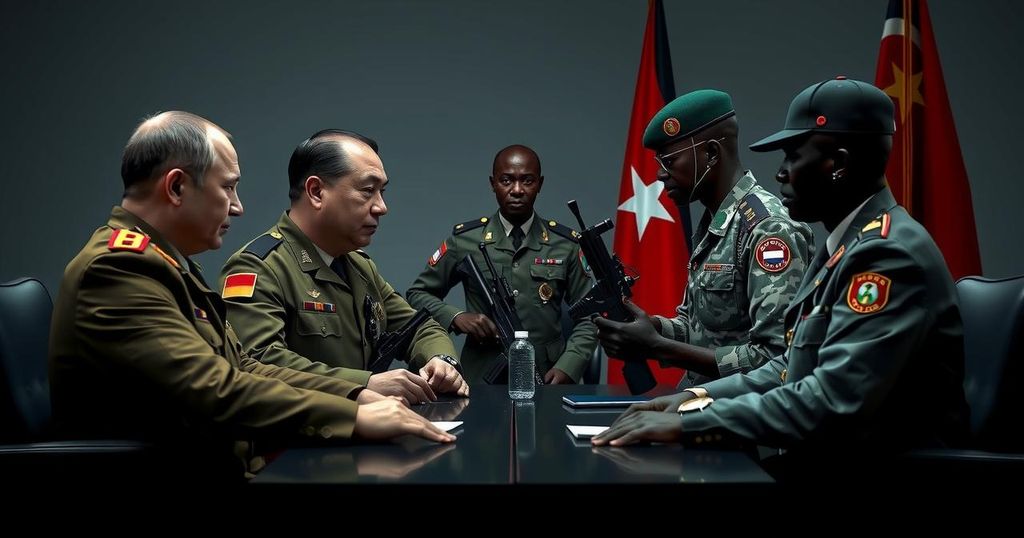Russia and China Oppose Transition of Kenya-led Force in Haiti to U.N. Peacekeeping Mission

Russia and China have opposed a U.S. effort to convert the Kenya-led force in Haiti into a U.N. peacekeeping mission, citing ongoing gang violence and funding challenges. Gangs control much of Port-au-Prince, leading to extensive insecurity, and the multinational force is critically under-resourced. Calls for urgent assistance and support underscore the complex situation in Haiti.
On Wednesday, at the United Nations, Russia and China voiced opposition to an effort led by the United States to convert the Kenya-led multinational force deployed in Haiti into a U.N. peacekeeping mission. This reaction came amidst escalating violence from gangs in Haiti, which now exert control over 85% of Port-au-Prince and have disrupted vital activities including airport operations. The U.N. Security Council had previously extended the mandate of the multinational force only a month prior, raising concerns about altering its status at this critical juncture.
The United States initially proposed a shift towards a U.N. peacekeeping operation to secure sustainable funding for the force, which is currently facing a considerable financial crisis. However, Russia and China declined to support this move, emphasizing that any transition to peacekeeping operations would complicate efforts to address the financing issues. China’s Deputy Ambassador, Geng Shuang, explicitly stated that deploying peacekeepers in Haiti at this time would place them directly in combat situations against armed gangs.
Furthermore, the multinational force intended to deploy 2,500 international police; nevertheless, only approximately 430 officers have arrived thus far. This underlines the urgency for adequate resources and support to assist the multinational force effectively. Russia’s Deputy Ambassador, Dmitry Polyansky, criticized the lack of funding and argued that the conditions in Haiti were not conducive for peacekeeping efforts, stating, “Conditions on the ground in Haiti are not appropriate for U.N. peacekeepers. Their role is to maintain peace and not to fight crime in urban areas…”
Despite the objections from Russia and China, other members of the Security Council, including U.S. deputy ambassador Dorothy Shea, advocated for the transition to a U.N. peacekeeping force as a means to stabilize the situation in Haiti and enhance financial and logistical support. A poignant appeal for intervention was made by Dr. Bill Pape, a Haitian doctor, who stressed the dire status of security forces in Haiti, noting their lack of sufficient resources to combat the rampant violence. Dr. Pape’s appeal encapsulates the pressing need for international assistance to restore safety to the beleaguered nation.
The situation in Haiti has deteriorated significantly, marked by escalating violence and gang control over substantial parts of Port-au-Prince. The international community has been engaged in efforts to stabilize the country, with a focus on providing financial and logistical support to police forces. A Kenya-led multinational force was deployed to aid in this endeavor, but funding issues have stymied its effectiveness. Meanwhile, U.N. peacekeeping operations are traditionally reserved for regions where peace can be maintained, thus raising questions about their role in Haiti’s current turmoil.
In summary, the opposition from Russia and China to the proposed transformation of the Kenya-led force into a U.N. peacekeeping mission underscores the complexities of addressing Haiti’s dire security situation. The urgent call for increased humanitarian and logistical support is evident, as highlighted by officials who stress the inadequacy of current resources. The international community remains divided on the best course of action, while the plight of the Haitian people becomes increasingly critical.
Original Source: www.durangoherald.com








